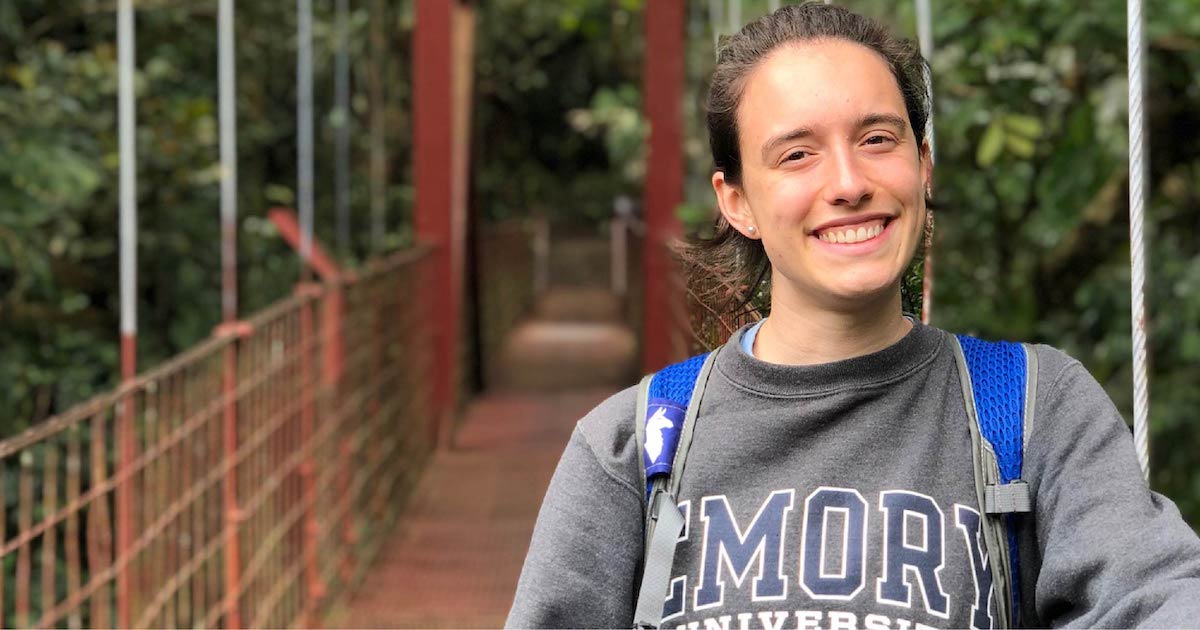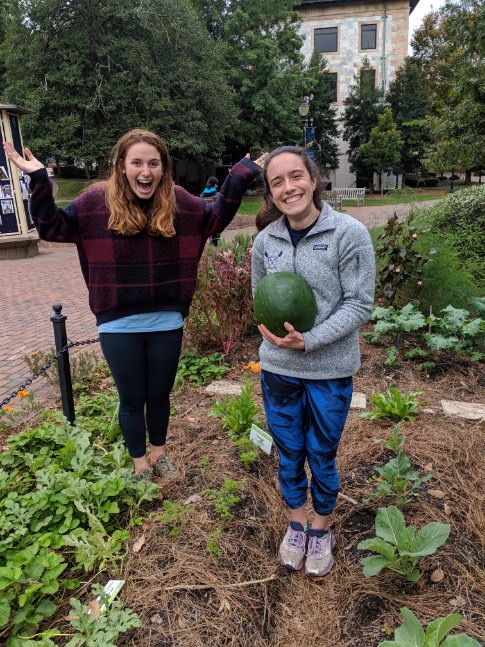New Fellow Elise Kulers on Bringing Food Systems Knowledge to Campus Communities
- by bonappetit

Bon Appétit Midwest Fellow Elise Kulers
Anyone that’s been around me long enough will tell you that my mind has always revolved around food— how to cook it, where to eat it, and what to make next.
My earliest form of entertainment consisted of watching my dad work his magic in the kitchen. When he wasn’t cooking, I’d read Food Network magazines cover-to-cover and watch cooking shows instead. In high school, I had the bright idea to conduct a large, at-home experiment to find the optimum pH for avocado pit germination, resulting in an impressive amount of pre-experiment guacamole and a few still-living avocado trees (which are now taller than me, I might add!). Anything was more interesting to me if it was related to food.

Elise at one of Emory University’s on-campus educational gardens
While the seeds of my undeniable love for food were sown much earlier than I remember, it wasn’t until I stepped onto Emory University’s campus as a first year that my fascination with food systems would take root in all aspects of my life, both personally and professionally. I was quickly awakened to the ways our conventional food system endangers our environment, communities, and health. At the same time, I was introduced to sustainable agriculture as a beautiful alternative, capable of revitalizing the land and the people who depend on it. A whole new world opened up to me, and there was no going back.
Digging in to farming and food systems
During the summer after my freshman year, I decided to bring to life what I was learning in the classroom: I decided to learn how to farm. As I picked peppers, trellised beans, pruned tomato plants, and got bitten by a seemingly endless stream of mosquitos under the hot summer sun, I grew a deep admiration for the people that feed us, whose work often goes unacknowledged or unseen. This gave me a renewed sense of purpose, to focus my energy on supporting farmers in their mission to grow food using environmentally sound practices and encourage an appreciation for that work through peer-to-peer education.
After I returned to campus as a sophomore, I dove head-first into as many food-related classes and clubs as I could. From sociology to biology, I studied everything from food sovereignty to the magical process of fermentation. I spent a semester in Costa Rica interviewing farmers about the impact of pesticide usage on their health and listened to their frustrations about the changing climate on their crops. Outside the classroom, I planned seasonal cooking demos with Slow Food Emory, a student chapter of the Slow Food movement. and taught other students how to grow food in our campus’ Educational Gardens. I also had the opportunity to work alongside faculty, staff, and chefs to help reach Emory’s ambitious sourcing goals as a member of the Sustainable Food Committee, where I first witnessed Bon Appétit’s mission in action. I had fully immersed myself in our campus food system and was ready to take what I had learned into a career in sustainable food advocacy and education.
Going to market, and beyond
After graduating, I embraced farmers’ market work as an exciting intersection between local farmers and communities, starting with the Fresh MARTA Markets, an initiative that offers convenient access to fresh produce in train stations in Atlanta. After moving to Chicago, I worked at Village Farmstand, a local grocery market committed to regenerative farming practices and fair farmer compensation.
Now that I am a Fellow with Bon Appétit (a dream come true!), I am excited to spark interest and excitement for food systems work where I first found my home in the sustainable food world — within campus communities. Simultaneously, I get to aid Bon Appétit in their mission to continue pushing boundaries for the future of sustainable food service.